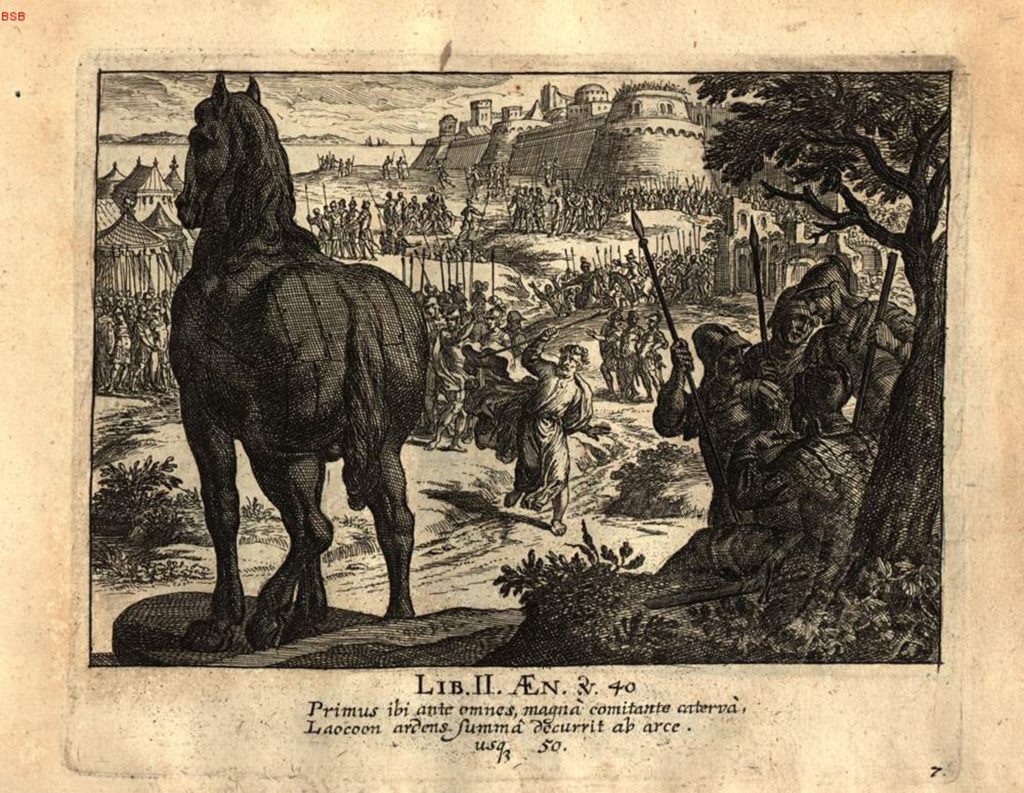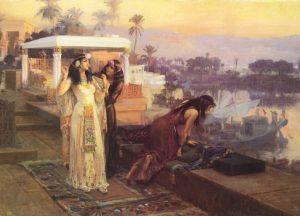It all started in ancient Greece, when everyone believed in all the great deities. Three goddesses were sitting, relaxing on Mount Olympus when an apple appeared. This is where it starts to get a bit messy. See, the apple was meant for the most beautiful goddess and of course, who wouldn’t want to be called the most beautiful of the goddesses? The three goddesses were Juno, queen of the gods, Minerva, goddess of wisdom and battle, and Venus, goddess of love and beauty. You probably see the predicament here.1

Well, all three goddesses wanted to be the receiver of this title and they decided to ask a mortal, one called Paris, a prince of Troy, to be the judge. After much bribing from each of the three goddesses, Paris finally went for the most appealing deal, which came from Venus. She offered him the most beautiful woman in the world, human, mind you, not goddess, because of course Minerva, in her mind, was the most beautiful of all. The most beautiful woman in the world was named Helen.2 The downside of it all was that Helen was married, and the way Paris got her wasn’t fair at all. And that caused the Trojan War, thank you Paris. After years of war, the Greeks knew that their strength was dwindling, and of course they came up with a plan to once and for all defeat the Trojans. This is where the end begins.3
The Greeks began building a horse made of timber, as tall as a hill with its ribs sheathed with plankings of cut pine, an impressive sight that was planned, or so they say, to be offered to the sea in order to achieve a safe return.4

But the real reason for the horse was to hide a number of Greek soldiers inside the horse’s hollow belly, and then give the horse to the Trojans as a gift without them noticing the soldiers inside. Once the horse was finished and ready to play its part, the Greeks left it behind on the grounds near the Dorian campsite, while they sped away on their ships and went into hiding behind a nearby island, waiting for the Trojans to take the horse into their city.5 A wooden horse as tall as a hill is very hard to miss, making the Trojans marvel at its grandeur.
When the Trojans discovered the wooden horse the next morning, there was debate on whether to bring the horse into the city or not. One Trojan named Thymoetes shouted yes, while another named Laocoön did not hesitate to attack the horse’s belly.6 If it weren’t for the gods’ sinister ways, or if they themselves weren’t crazed with pride, the Argive den wouldn’t have made them fools, and with a bloody piece of steel, Troy would still be standing.7 And since they didn’t notice any of that, the Trojans debated whether or not to haul the enormous horse inside and bestowed it upon their king.

Just then, an unknown Greek had been discovered. Trojans all around ran to see who it was. This unknown man was an abandoned outcast from the Greeks. With his voice full of misery, the Trojans felt sorry for him and let him speak about his woes.8 This man named Sinon went on to explain where he came from and what had happened with the Danaans. He convinced the Trojans he was innocent, and they accepted his words and continued questioning him. One of the questions was what the horse meant and why it was left behind. The horse was a figure of reparation for what the Greeks had done to one of Minerva’s temples.9 And with this, the Trojans let Sinon live.
Alas, tragedy was meant to strike the Trojans, for in that same day, Laocoön, the man who stabbed the horse, was attacked. Twin snakes came from the sea onto dry land all the way to Laocoön and his two sons. Once there, the snakes began squeezing Laocoön and his sons to death, finishing them off, for that was the curse of Minerva, the patron goddess of the hulk he stabbed.10

Night time finally came and with it the Greeks began to return to the gates of Troy. Who would have known that Sinon, the outcast of the Danaan, was a traitor all along, faking his grief and fear to gain the Trojans’ trust. Once all everyone went to their homes for the night, the Greeks started the last step of their plan to win. The soldiers got out from the horse then opened the gates and let the returning Greeks in. With them came fires all across the town with no one to stop them. The sack of Troy had begun and it met its doom that night.11 The Trojans were no more. They had lost everything. The survivors had to flee their city or face the consequence of death or slavery. And this is how Troy fell at the hands of a wooden horse. Laocoön was right in warning his people to beware of the Greeks, even when they are giving you gifts!

- Salem Press Encyclopedia, January, 2017, s.v. “Trojan War,” by Todd William Ewing. The names of these goddesses are from the Roman mythology. Their Greek names were Hera, Athena, and Aphrodite. ↵
- Salem Press Encyclopedia, January, 2017, s.v. “Trojan War,” by Todd William Ewing. ↵
- Salem Press Encyclopedia, January, 2017, s.v. “Trojan War,” by Todd William Ewing. ↵
- Virgil, The Aeneid, translator Robert Fitzgerald (New York: Vintage Classics, 1983), 34. ↵
- Virgil, The Aeneid, translator Robert Fitzgerald (New York: Vintage Classics, 1983), 34. ↵
- Virgil, The Aeneid, translator Robert Fitzgerald (New York: Vintage Classics, 1983), 35. ↵
- Virgil, The Aeneid, translator Robert Fitzgerald (New York: Vintage Classics, 1983), 35. ↵
- Virgil, The Aeneid, translator Robert Fitzgerald (New York: Vintage Classics, 1983), 36. ↵
- Virgil, The Aeneid, translator Robert Fitzgerald (New York: Vintage Classics, 1983), 39. ↵
- Virgil, The Aeneid, translator Robert Fitzgerald (New York: Vintage Classics, 1983), 41. ↵
- Virgil, The Aeneid, translator Robert Fitzgerald (New York: Vintage Classics, 1983), 43. ↵



34 comments
Emily Velazquez
I personally believe this is a very interesting topic, only because of how it began. It astonishes me that the fall of the Trojans was due to Helen, as she’s known to be the woman who launched one thousand ships! I find it also in parallel with the story of Adam and Eve and how Eve received the apple from the serpent; she found herself surrounded by wisdom yet unfortunate consequences just as Paris took the apple from Venus, only to doom his people as well.
Maggie Amador
I had no idea that the Trojan horse had been sparked due to a story of mythology. It’s interesting how this article progresses from start to finish. With so much hatred for each other, I wonder why the Trojans were so sympathetic towards a Greek outcast. It seems odd to me that they would allow Sinon to live despite him being from the enemy, but nonetheless, this article was an intriguing read.
Kathyleen Lauriano
I’ve heard of the Trojan war but not how it started. The fact that it all started with a contest on who is the most beautiful goddess is interesting, especially since it started a chain of events and a big war. The strategies they used were very smart and clever. This article was very informative and went into great detail about the war. Great job.
Esperanza Rojas
I have heard so many of the stories mentioned, the battle of the Trojans, The Trojan Horse, and the and apple was fallen upon the three goddess, but I never heard or read any that had them all tied together. The article itself was great, it told the story so well and I wished it was an explanatory article because it made me want to read more about he topic I loved the writing style as well, and how it asked the reader’s questions as well as some of the sarcastic humor that was there.
Honoka Sasahara
I learned about the horse a little in history class before and I had an interest, but the teacher didn’t teach me so much details.
Therefore I enjoyed this article very well and got new informations of the story’s details or certain people such as Sinon.
This is so helpful article for people like me who want to know Greek myth much more because it is summarized well and easy to read.
Luke Lopez
This article explained how the Greeks were able to conquer the Trojans, and how the Trojans were deceived by Sinon. I have never heard of Sinon, and certainly did not know that he would be so crucial in the Trojan’s defeat. Paris started this whole situation, because he took Helen from the Trojan’s and as a result began the war between the Greeks and the Trojans.
Suvesh Vasal
The background information is given really made it clear why and how the Greeks managed to get into troy. I had never heard the part of Paris choosing between the three goddesses and the part about Sinon telling history to them. This was a very interesting and enjoyable article to read. It was informative and obviously well researched.
Hannah Wilson
I have read about the Trojan Wars multiple times, but it is still an interesting story. I have always been interested on how many soldiers they could fit into the Trojan horse. This article was written well and flowed. It was more of the story and less of the details and facts. It kept me interested even though I have read this story before.
Natalie Childs
I knew a lot about Greek Mythology, and knew a lot about this subject, before reading, but I did not know the specifics of what led to Paris determining the most beautiful of the three goddess’s: Juno, Minerva, and Venus. I do wish it had gone into specifics of how exactly Paris got Helen, but overall, it was a good article.
Christopher King
I enjoyed this article and found it interesting because of the description of why they would bring a giant wooden horse into their city that was left under suspicion. Their fear for punishment from the Gods were greater than trying to remain safe. There is no telling how much of this is actually try, especially the part about the snakes coming onto land and killing him and his sons. Much of the time were just stories but always had some truth.